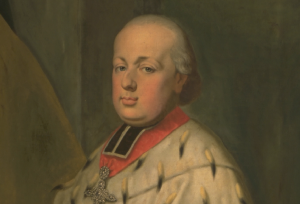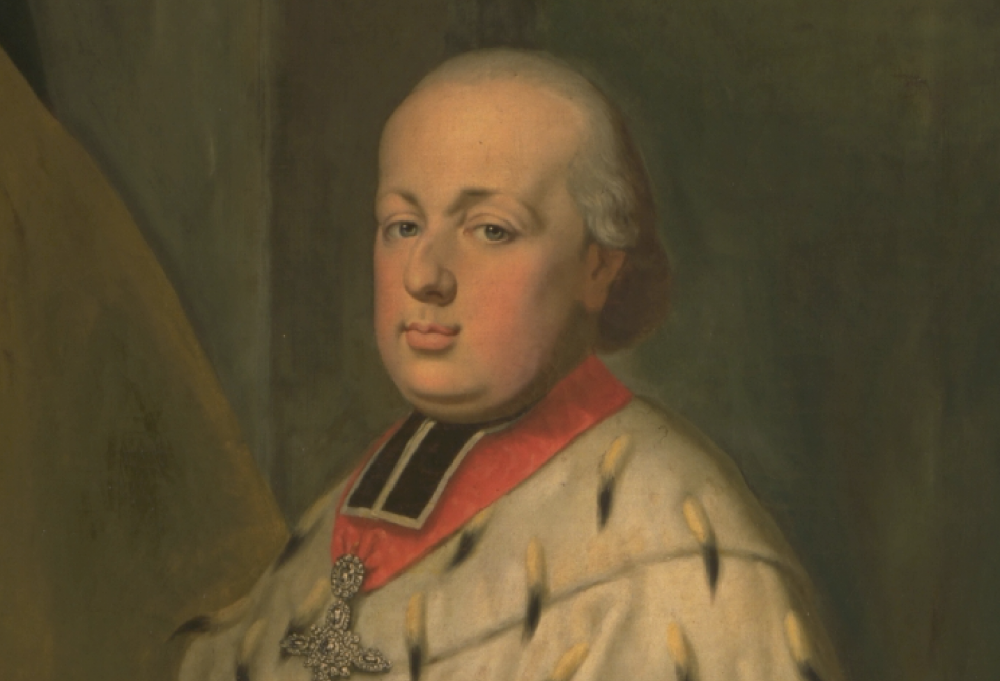Project Description
The Operatic Library of Elector Maximilian Franz (1780-1794) is a current research project funded by the Austrian Science Fund (FWF) from January 2013 to December 2015. It is based at the University of Vienna’s Institute of Musicology, where it is led by Professor Birgit Lodes.
Questions
Maximilian Franz (1756-1801), the youngest son of Maria Theresa and Elector of Cologne from 1784, was known as a discerning musical patron with an extensive collection of scores, which he made available for court performances as well as for use and study by court musicians. Questions of performance practice come especially to the fore: How was this music actually performed? How were the operas modified to match the strengths and weaknesses of the troupe? What were the contributions of the court’s major musical personalities (i.e. Neefe, Reicha, et al) in these productions? What impressions would the young Beethoven have gained from performing this repertoire? These raise further questions: How were the musical works in this library obtained, first in Vienna and then in Bonn? Which people (such as the hornist and publisher Nikolaus Simrock), networks, and processes of transfer played a role in this? What can be learned about the elector’s significance in the musical life of Vienna and Bonn? What influence did he exert on the Bonn theatre? How did this theatre develop as an institution during his reign? How can this all be understood in the context of court opera practices in German-speaking Europe at the end of the 18th century?
Sources
These questions can be addressed by a single body of sources: Elector Maximilian Franz’s extensive music library. In 1784, he brought the kern of this collection to Bonn, the seat of the electorate, from Vienna, where he was born and raised. From then on, he continually expanded his collection through the acquisition of new scores. Through dynastic connections between Maximilian and the Estense branch of the Habsburg family, a large part of this library ended up in Modena, where it is now preserved at the Biblioteca Estense Universitaria. This project focuses on the music-dramatic works in this collection. The central task is to identify and analyze the surviving scores and orchestral/vocal parts. Information on the sources themselves (paper types, water marks, copyists, etc.) will be systematically determined and made available in a database. Conducted in tandem, archival research will compliment this source-critical study. One side of this research concentrates on various archives in the Rhineland (Landesarchiv NRW, among others), which contains, above all, documentation on the organization and administration of the court theatre as well as its musicians. The other focuses on Vienna’s Haus- Hof- und Staatsarchiv, where Maximilian Franz’s (largely untapped) estate and papers can be found.
Goals
By researching both the music-dramatic sources in Modena and further materials pertaining to the Bonn theatrical enterprise as well as to the Elector himself, we hope to provide a well-rounded portrait of court opera at Bonn in the late 18th century. One specific area of interest is the relevance of this research for in the context of Ludwig van Beethoven’s earliest musical experiences. The results of the musical source study will be made available in the form of a database by the end of 2015, accompanied by a published volume. Further primary sources and case studies will be published, as well as a dissertation on the topic “The Musical Network of Archduke Maximilian Franz in Vienna” (by Elisabeth Reisinger).

Portrait of Maximilian Franz (Detail)
Whole picture © Dombauhütte Köln / Cologne,
Photo: Matz and Schenk, click to display entire portrait
ABOUT THIS PICTURE
This painting by an unknown artist depicts Maximilian Franz in the distinctive regalia of the Archbishop of Cologne.
Photo used with permission from the Dombauhütte Cologne.

